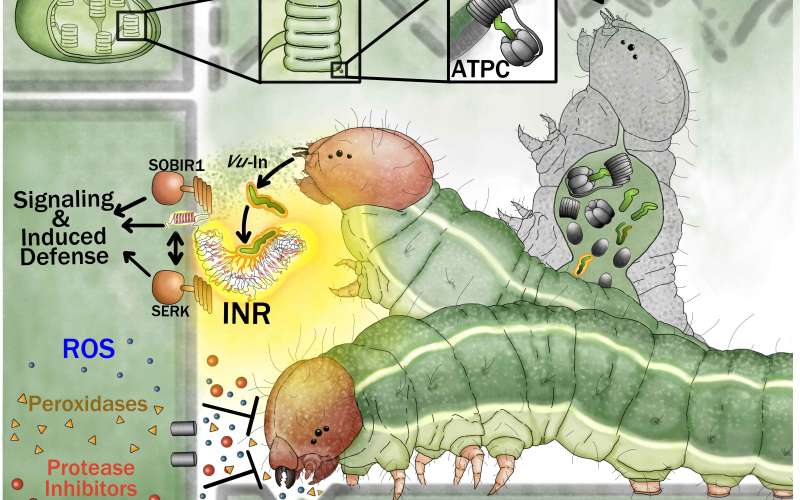
Researchers Reveal Switch Used in Plant Defense against Animal Attack
November 25, 2020| |
Researchers from the University of California San Diego have detected the first key biological receptor that serves as an alarm in plants that triggers when herbivores attack them. This receptor functions like the immune system of humans to counter viruses in the body. The results were published in the Proceedings of the National Academy of Sciences.
Scientists have known that plants protect themselves from the damages brought about by hungry caterpillars and herbivores. The plant's biological mechanism for countering this natural phenomenon has captured the interest of plant biologists for decades to help them develop new strategies for improved plant health.
The researchers used forward genetics to pinpoint genetic variants that led them to the discovery of the inceptin receptor (INR) in bean plants. INR senses conserved plant protein fragments that are accidentally released by caterpillars as digestive products during munching thereby recognizing attack.
The discovery of INR in beans raises interest in discovering other potential receptors to boost defenses in essential agricultural crops. "Our work provides some of the earliest defined mechanistic insights into the question of how plants recognize different attacking herbivores and activate immunity to animals. It is a fundamental question in biology that has been pursued for 30 years," said Eric Schmelz of UC San Diego's Division of Biological Sciences.
For more details, read the article in the UC San Diego News Center.
| |
You might also like:
- Researchers Map Plant Immune System
- Researchers Show How Fungal Pathogen Disables Plant Defense Mechanism
- Researchers Discover Vaccine to Strengthen Plant Immune System
Biotech Updates is a weekly newsletter of ISAAA, a not-for-profit organization. It is distributed for free to over 22,000 subscribers worldwide to inform them about the key developments in biosciences, especially in biotechnology. Your support will help us in our mission to feed the world with knowledge. You can help by donating as little as $10.
-
See more articles:
-
News from Around the World
- Online Animal Biotech Discourses Cover Market and Public Readiness
- International Research Group Confirms Contribution of Bioenergy to Climate Change Mitigation
- FAO Urges G20 to Support Farmers, Protect the Vulnerable and Invest in Innovation
- OFAB Nigeria Celebrates Exemplary Science Journalism
- International Research Team Identifies Genetics Behind Deadly Oat Blight
- Study Details Efforts to Predict Corn Traits Based on Genomic and Data Analytics
- Researchers Reveal Switch Used in Plant Defense against Animal Attack
- Giant Virus Genomes Found Riding on Algae Genomes
- Biotech Experts to Tackle the Role of Biotech in Indonesia's Food Security
- EFSA Publishes Scientific Opinion on Two-Event Stack Soybean DAS-81419-2 × DAS-44406-6
-
Research Highlights
- GM Maize Feed Safe For Quails
- GmMYB3a Overexpression Improves Drought Tolerance in Peanuts
-
Health
- Digital CRISPR-Cas‐Assisted Assay for Rapid SARS‐CoV‐2 Detection
-
Read the latest: - Biotech Updates (January 28, 2026)
- Gene Editing Supplement (January 28, 2026)
- Gene Drive Supplement (February 22, 2023)
-
Subscribe to BU: - Share
- Tweet

